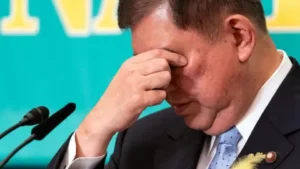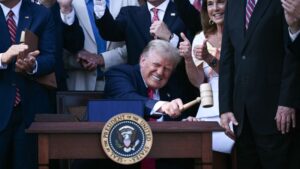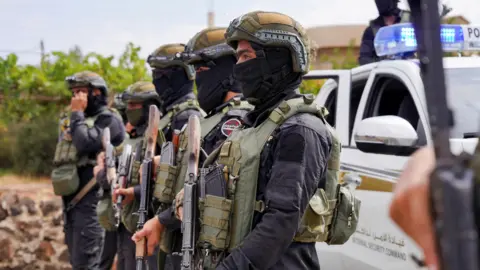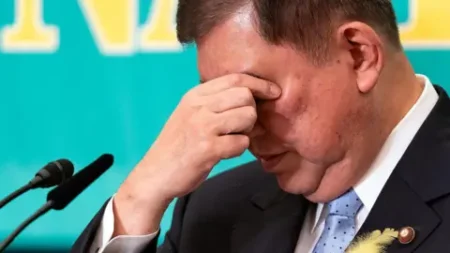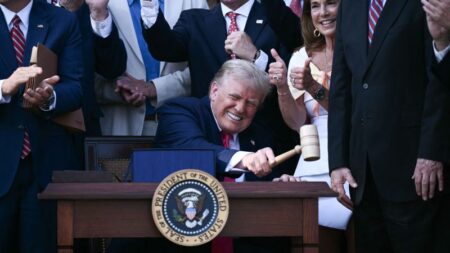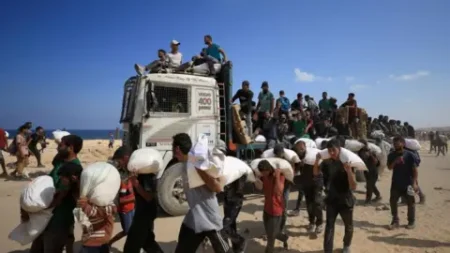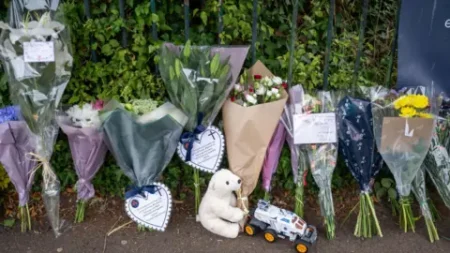In a significant development in southern Syria, the city of Suweida is experiencing what has been described as a “cautious calm” following a week of brutal tribal clashes. These conflicts primarily involved Druze fighters, Bedouin gunmen, and government forces, as reported by the Syrian Observatory for Human Rights (SOHR), which is a UK-based monitoring group tracking the situation in the region. The fighting had escalated to alarming levels, prompting the government to intervene after a series of violent confrontations that have deeply impacted the local population.
The atmosphere in Suweida is now reportedly quiet, with residents observing a cessation of hostilities beginning Sunday. The cessation of fighting aligns with the government’s announcement that the Bedouins have retreated from the city, which has a predominantly Druze demographic. This withdrawal followed an official ceasefire declared by Syria’s interim president, Ahmed al-Sharaa, although it faced immediate challenges in halting the ongoing violence.
The toll from the week-long clashes has been catastrophic, with more than 1,000 fatalities recorded. Additionally, the humanitarian situation in the city is dire, characterized by severe shortages in medical supplies. This alarming situation has further fueled the need for urgent humanitarian assistance. Reports indicate that at least 128,000 individuals have been displaced due to the violence, contributing to a growing crisis as the United Nations migration agency highlighted on Sunday.
Despite the relative calm, the SOHR notes that Suweida remains under the control of local Druze fighters, while many of the tribal gunmen have retreated from various areas within the region. In a calculated move to manage escalating tensions, the Syrian government has implemented measures to restrict movement to and from the city by closing roads with soil barriers. Only ambulances are permitted to navigate these barriers, indicating a conscious effort to maintain some level of public safety while controlling the flow of individuals into and out of the region.
The roots of the recent violence can be traced back to longstanding tensions between the Druze and Bedouin communities, which erupted violently after a Druze merchant was abducted on the road to Damascus. In response, the interim government deployed security forces to the city in an effort to restore order and address the escalating violence. Both sides – Druze and Bedouin fighters – as well as elements of the security forces have been accused of committing atrocities throughout the conflict.
After the ceasefire announcement on Saturday, the situation remained tense as evidence suggested Bedouin fighters were forced out of the city, yet violence continued in other parts of the province. Amid this turmoil, local sources reported on Sunday morning that the sound of gunfire had ceased, indicating a temporary reprieve in the violence. However, the overall humanitarian conditions within Suweida have been alarming, with one local resident expressing deep concerns over the lack of medical supplies, stating that there was an overwhelming stench of corpses in the national hospital.
Health care professionals in the city described the medical facilities as being on the brink of collapse. Kenan Azzam, a dentist, described hospitals as a “disaster,” emphasizing that they were essentially out of service. Reports from health officials indicated that no medical relief had arrived in the city prior to the calm experienced over the last few days, demonstrating the desperate need for assistance amid a worsening humanitarian crisis.
Ultimately, while the cessation of hostilities represents a fragile moment of peace in Suweida, the challenges facing the community remain profound. Humanitarian aid is urgently required, and the complexities of tribal relations and government involvement continue to pose significant concerns for the future stability of the region. The situation in Suweida is indicative of the larger unrest affecting various segments of Syrian society, requiring ongoing attention and support from the international community.

